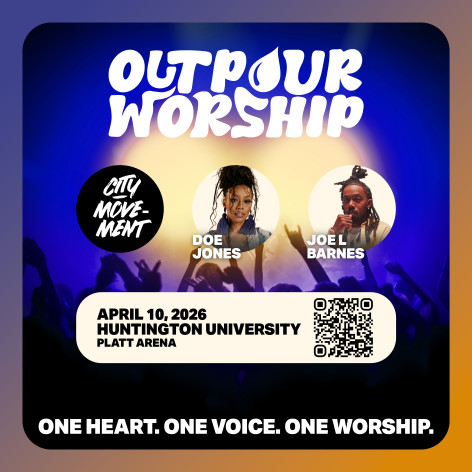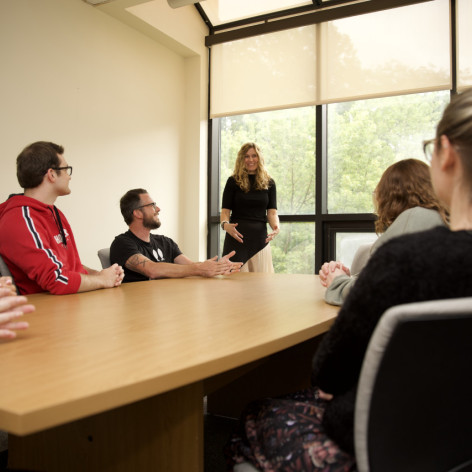Survey: Students find better opportunities for experiential learning
FOR RELEASE: Sunday, November 20, 2011
HUNTINGTON, Ind. Huntington University provides better opportunities for internships, faculty interactions and independent study over other institutions, students say. In a national survey of student engagement, Huntington students gave the university positive marks, listing the institution above its peers in many facets.
The National Survey of Student Engagement (NSSE) is used to collect information about the nature and quality of a student's educational experience. NSSE surveys first-year students and seniors and measures five benchmarks of effective educational practice: level of academic challenge, active and collaborative learning, student-faculty interaction, enriching educational experiences and supportive campus environment.
"The more a student is engaged in their academic endeavors the more likely they are to succeed," said Dr. Ron Coffey, vice president for student life.
In the survey, 68 percent of HU students said they received prompt written or oral feedback from faculty as opposed to 58 percent at all other institutions. For seniors, 77 percent did a practicum, internship, field experience or clinical assignment while at Huntington as opposed to 50 percent at other institutions. Huntington's Enterprise Resource Center connects students with area businesses, churches and other agencies to develop meaningful "real-world" experiences.
"It is encouraging to see the work of the Enterprise Resource Center affirmed," Coffey said. "Experiential learning is vital to the educational process. It helps students develop a better sense of their career paths while building on skills taught in the classroom."
Students also gave Huntington high marks for interactions with faculty, including discussing career plans and receiving feedback, as well as participating in co-curricular activities and independent studies.
Huntington uses NSSE to guide strategic initiatives for the university.
While fewer HU students had interactions with individuals of another race or ethnicity than other institutions, according to the survey, the university uses the Horizon Leadership Program and the Harmony Task Force to further create more diversity within the campus community.
Launched in the fall of 2008, the Horizon Leadership Program is a partnership between Huntington University and Youth for Christ USA with the goal of creating a more racially and ethnically diverse campus. A cohort of students from racially and ethnically diverse backgrounds is selected each year to receive the Horizon Leadership Scholarship.
Formed in 2007, the Harmony Task Force is an ad hoc group of local business leaders, elected officials, clergy, educators and social-service workers advancing values of the City of Huntington's mission statement which declares Huntington to be "a community of civility and inclusion where diversity is honored and differences are respected."
NSSE was officially launched in 2000, and Huntington University has participated four times, 2003, 2004, 2006 and 2011. The survey was administered this spring to 761 colleges and universities. Since its start, nearly 1,500 baccalaureate institutions in the U.S. and Canada have participated.



